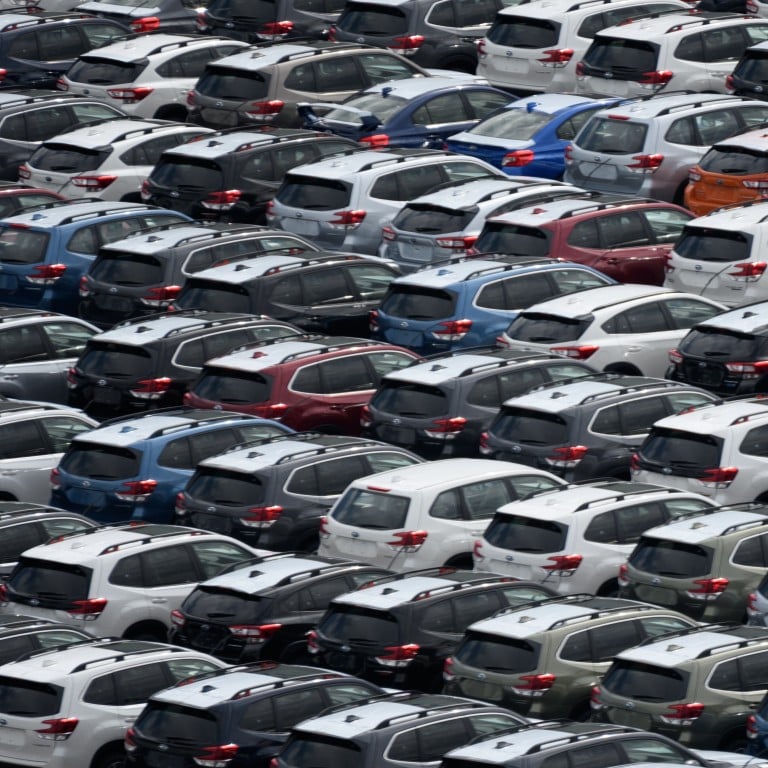
Japan, Britain rush to seal post-Brexit trade deal
- Talks in London are expected to benefit from the countries’ close working relationship, with relatively minor wrinkles to be ironed out
- Analysts say the critical agreement has been scaled back to get it signed and ratified on time, though it can be built on in the future
Analysts say the first half of that assessment is accurate, as reaching an agreement that will smoothly take over from the Japan-European Union economic partnership agreement is undoubtedly critical to both Tokyo and London. But they point out that the wrinkles to be ironed out are minor, and the two countries already have a close and mutually beneficial working relationship they are keen to protect.
Most tellingly, plans for a far-reaching “21st-century trade agreement” that would have gone significantly beyond the 2019 Japan-EU trade deal have been scaled back in the interests of getting the paperwork signed and ratified on time.
On his three-day visit to London, Japanese foreign minister Motegi will meet British minister of international trade Liz Truss as well as Dominic Raab, his direct counterpart.

Martin Schulz, chief policy economist for Fujitsu’s Global Market Intelligence Unit, anticipates that the discussions will go fairly smoothly.
“The reason they have been able to make such fast progress with the agreement is because they have dialled it down from the original plan,” he said. “It would have been very easy for them to effectively roll over the EU-Japan free trade agreement, but at the outset both Japan and Britain said they wanted a much more interesting and forward-looking agreement.
“Those are the reasons that Britain has cited for leaving the EU, it wanted tailor-made trade agreements that went beyond EU deals.”
Schulz said that while the Japan-Britain deal might not break new ground, there was at least the opportunity of add-ons once the fundamentals were in place and the chance for more innovative approaches to trade after the deadline had been met.
The total value of trade between the two nations came to slightly over £29 billion (US$37.9 billion) in 2018, according to the British government. Britain’s Department for International Trade estimates that a trade deal with Japan could add a further £15.2 billion to that annual total and increase the wages of British workers by £800 million.
It could also, the department said, support London’s ambitions to join the Comprehensive and Progressive Agreement for Trans-Pacific Partnership (CPTPP) trade deal, one of the largest free-trade arrangements in the world, which accounted for 13 per cent of global GDP in 2018.

02:14
Boris Johnson elected UK Prime Minister with huge majority, clearing way for Brexit
Experts say London also sees the Japan deal as a potential showcase for future free-trade agreements with the United States, Australia, India and other potential trading partners as soon as it extricates itself from the EU.
One reason progress has been so rapid to date is that while the EU-Japan discussions were held up on the issue of agricultural products, no such hurdle existed between Britain and Japan. There are, however, still some areas where the two sides need to find some common ground.
Schulz from Fujitsu points out that Britain has a large car-parts manufacturing industry and is effectively in competition with Japan for the European and North American markets, while Tokyo wants to scrap all tariffs on imported cars as soon as possible. London, in turn, is seeking to guarantee benefits for its textile industry and financial services sector.
Noriko Hama, a professor of economics at Kyoto’s Doshisha University, said both sides appeared to have gone out of their way to “avoid the difficult issues” and reach an agreement swiftly – something that would also benefit both nations’ leaders politically.
“The agreement is being crafted very carefully and will not include agricultural products, for example, so there should not be too many bumps in the road before both sides ratify the deal,” she said.

